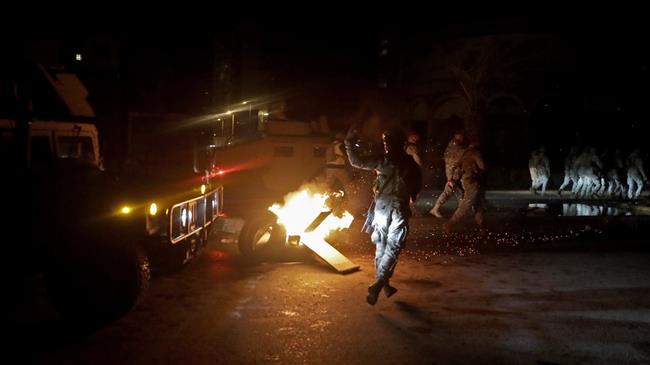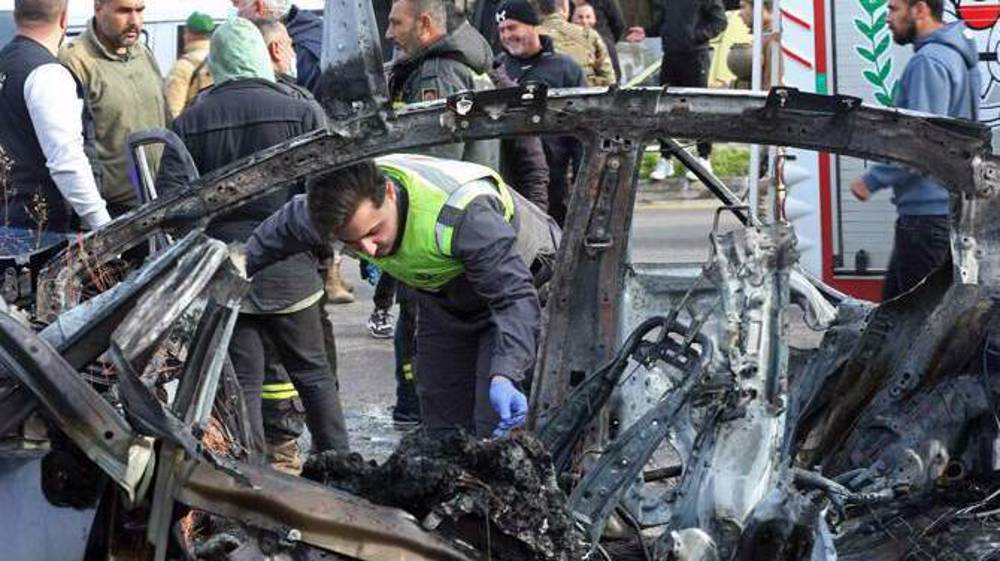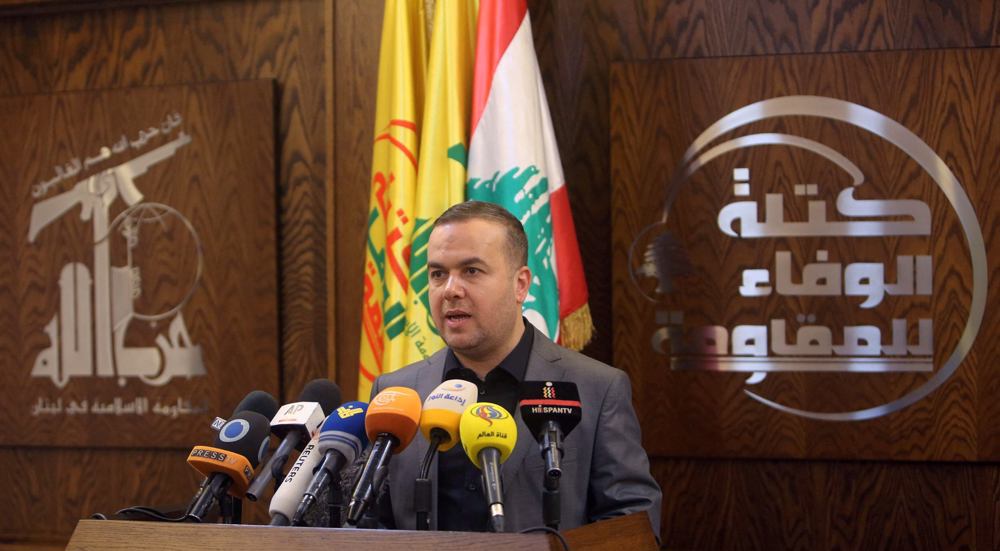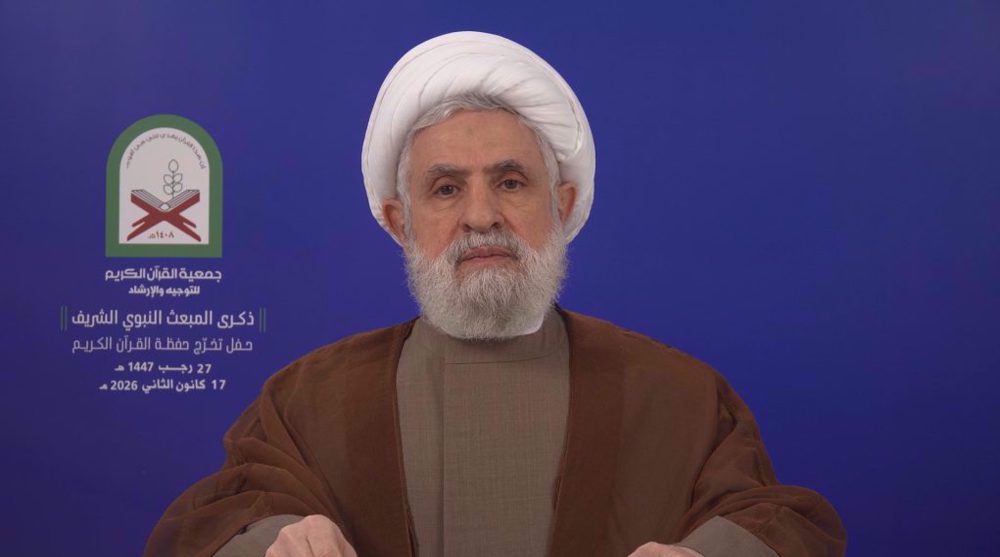Lebanese leaders denounce violent anti-lockdown protests in Tripoli
Lebanese caretaker Prime Minister Hassan Diab and President Michel Aoun have condemned violence and clashes in the northern city of Tripoli between security forces and demonstrators angered by a strict coronavirus lockdown that has exacerbated a chronic economic crisis.
“The criminals who set the municipality on fire and attempted to burn the court... represent a black hatred for Tripoli,” Diab said in a statement.
“We promise to work quickly to restore the municipality building of Tripoli so that it remains an expression of its dignity and pure heritage,” he added.
“The challenge now is in defeating these criminals by arresting them one by one and referring them to the judicial system,” Aoun also said in a separate statement in condemnation of the violence.

The Lebanese Army’s Directorate of Orientation announced in a statement on Friday that it had arrested five people involved in the overnight torching of Tripoli’s municipal building.
In the statement, the army said three suspects – two Lebanese nationals and a Syrian citizen – were present inside the building when they were detained.
Lebanese army forces arrested two other people in the Bab al-Tabbaneh area and the Miten Street area on suspicion of preventing firefighters from reaching the burning municipal building and taking part in rioting.
The Army Command noted that three soldiers were injured in Thursday’s incidents, emphasizing that “military units are sparing no effort to preserve security and stability in Tripoli and the rest of the Lebanese territories.”
One person has died and more than 250 others have been injured in Tripoli during straight nights of unrest this week.
On Friday afternoon, a number of young men gathered outside the government’s main building in Tripoli, pelting security forces with stones as some of them chanted “We’re Hungry, We Want to Eat!”
Security forces, in return, fired tear gas to disperse the protesters as army troops deployed around the city’s Abdul Hamid Karami Square, which is also known as al-Nour Square.
The soldiers later intervened and pushed protesters away from both sites, sending them to neighboring streets after which they pelted the troops with stones.
Former Prime Minister Najib Mikati warned on Friday that should the army prove unable to control the situation in his hometown quickly enough, dangerous disorder could set in.

“I may have to carry arms to protect myself and my institutions,” Mikati told local media.
Earlier this month, Lebanon imposed a nationwide lockdown in a bid to stem a surge in COVID-19 infection cases and prevent its hospitals from being overwhelmed.
A round-the-clock curfew is in force, and grocery shopping is restricted to home deliveries, which are often unavailable in Tripoli that is already one of Lebanon’s poorest areas. Authorities have extended the lockdown by two weeks to February 8.
Lebanon has been fighting against COVID-19 cases since the coronavirus pandemic began there on February 21, 2020. The country has recorded over 289,000 COVID-19 cases while death toll from the virus stands at more than 2,500.
Lebanon has also been in the throes of an unprecedented economic and financial crisis since 2019. The crisis has left tens of thousands people jobless as the local currency has lost 80 percent of its value amid US sanctions.
Diab has continued to steer the government in a caretaker capacity since he quit in the aftermath of the suspicious August 4 explosion at Beirut’s port, which killed at least 190 people, injured thousands, and left some 300,000 homeless.
Senior cmdr. strongly warns Trump following rhetorical remarks concerning Leader
EU Parliament halts US trade deal after Trump tariff threat
VIDEO | An unchecked presidency
VIDEO | Deportations strain Afghanistan’s fragile economy
‘Full-scale atrocity’: Iran security body reports 2,427 martyrs in US-Israeli-led riots
Smallest coffins are the heaviest: The three youngest victims of foreign-backed riots in Iran
Hamas warns of ‘systematic Israeli violations’ as Gaza ceasefire teeters
Israeli strikes kill 11 across Gaza, including children and journalists: Palestinian medics












 This makes it easy to access the Press TV website
This makes it easy to access the Press TV website